A growing number of Americans are falling into the class of ‘binge drinker’ – defined by the CDC as “a pattern of drinking that brings a person’s blood alcohol concentration to 0.08 percent or above.”
For men, this usually equates to five or more drinks and for women, four or more, within a two-hour period.
According to a 2013 survey carried out by the National Institute on Alcohol Abuse and Alcoholism, 24.6% of US adults engaged in binge drinking in the past month; while 6.8% engaged in heavy drinking.
As if that wasn’t concerning enough, now even moderate drinking habits are being linked to a growing list of alcohol-related health concerns – from poor immunity to liver cirrhosis and breast cancer.
That’s not to say that enjoying a drink every now and then is a bad thing – I find a glass of wine or a bottle of beer can be a great way to relax or celebrate special occasions.
But when it starts affecting our physical and mental health, that’s when we need to sit up and pay attention.
Are your drinking habits starting to take their toll on your body? Read on to see if you recognize any of these signs that indicate they are.
- You’re Sleeping Badly
- You Visit Your Dentist Too Often
- You’re Depressed
- You Have Dry Eyes
- You’ve Got Skin Problems
- Your Sexual Performance is Off
- Final Thoughts
Table of Contents
+You’re Sleeping Badly
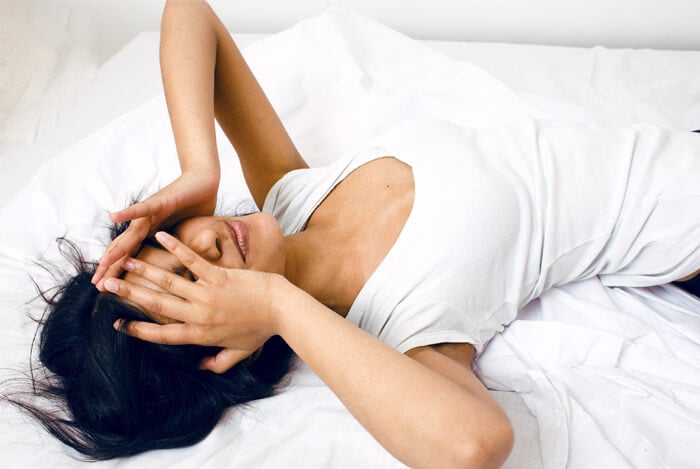
Getting a good night’s sleep can be a challenge at the best of times but, if you’re after having a few too many, it’s even more difficult.
You might be thinking ‘wait a minute, I sleep better after a nightcap’. But research says otherwise.
A 2013 review of 27 studies shows that, while alcohol does allow healthy people to fall asleep quicker and sleep more deeply for a while, it actually reduces rapid eye movement (REM) sleep – the truly deep type of sleep that our bodies need for restoration.
The more you drink before bed, the more REM sleep is affected. Such disruptions lead to daytime drowsiness and poor concentration.
Another way alcohol can disrupt sleep is by causing or exacerbating sleep apnea – a condition characterized by pauses in breathing, or shallow breaths during sleep.
One study, published in the American Journal of Medicine, found that even men who don’t normally suffer from sleep apnea can experience it after consuming alcohol.
Twenty men were divided into two groups and studied over two nights. Group A was given a placebo on night one, and alcohol on night two; while group B was given alcohol on night one and a placebo on night two.
Alcohol was associated with significant increases in the occurrence of apneic events after drinking. What’s more, symptoms of disrupted sleep persisted for an additional night after that.
You Visit Your Dentist Too Often
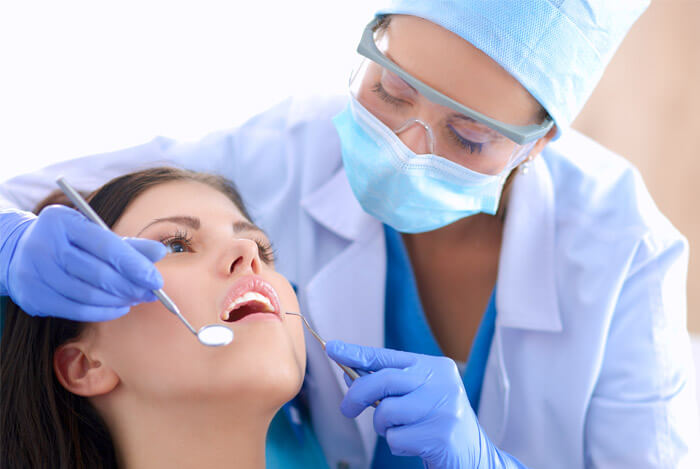
If you have to take quarterly trips to your dentist because of yet another toothache, then take a look at your diet.
2004 research, which evaluated the effect of alcohol on the severity of periodontal disease (gum disease) found that a significant relationship exists between the two.
The researchers found that the more alcohol drank per week, the higher the risk of suffering from gum disease – which can range from simple gum inflammation to major soft tissue damage and even tooth damage!
Saliva is one of your mouth’s main defenses against bacteria. Without it, plaque and bacteria can build up and cause decay, along with bad breath.
You’re Depressed
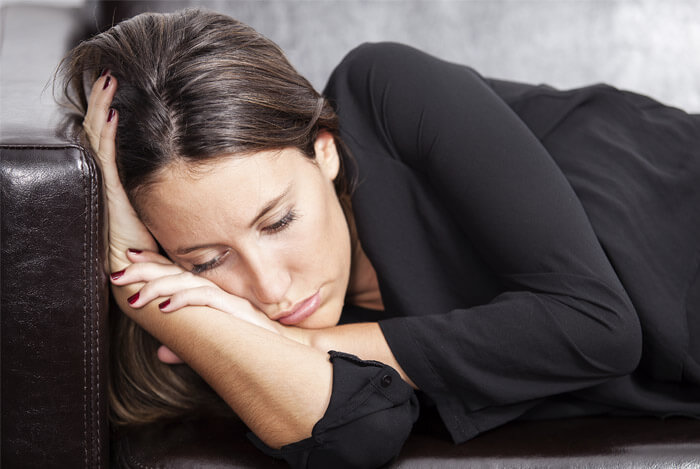
Alcohol has long been linked with depression, although – much like the chicken and egg scenario – researchers weren’t sure which came first: depression or alcoholism!
A recent study, published in the Journal of Studies on Alcohol and Drugs, has shed some light on this.
Over a 30-year period nearly 400 men (who were 18 years of age at the beginning of the study) were examined.
Of those that developed alcohol problems, nearly 20% suffered at least one bout of major depression – the majority of which were only seen during bouts of heavy drinking.
The researchers behind the work believe that it’s even more likely that you’re depressed because you drink heavily, rather than you drink heavily because you’re depressed.
They also say that if you abstain from drinking, your depression is ‘very likely to disappear’.
The low moods experienced after hitting the bottle too hard could well be down to alcohol’s effect on serotonin levels – the body’s ‘feel good chemical’.
1991 research, which looked at blood levels of serotonin 45 minutes after consuming alcohol, found that it was significantly reduced – similar to the levels seen in patients with depression.
You Have Dry Eyes

Wake up to sore, scratchy and dried out eyes after a few glasses of wine? That could be dry eye.
The National Eye Institute defines dry eye as a condition where your eyes don’t produce enough ‘tears’ to lubricate the eye properly.
A 2012 study, carried out by the Hallym University College of Medicine, has found that drinking alcohol can indeed lead to dry eye.
20 healthy males, with no history of eye disease, were divided in two groups. One group was a control, while the others were asked to drink the equivalent of two beers over a two-hour period.
In the morning, tear hyperosmolarity and a significantly shortened tear break up time were found in all of the men – both of which can lead to dry eyes.
The evidence suggests that even a small amount of alcohol can increase the risk of, and exacerbate, dry eye syndrome.
You’ve Got Skin Problems
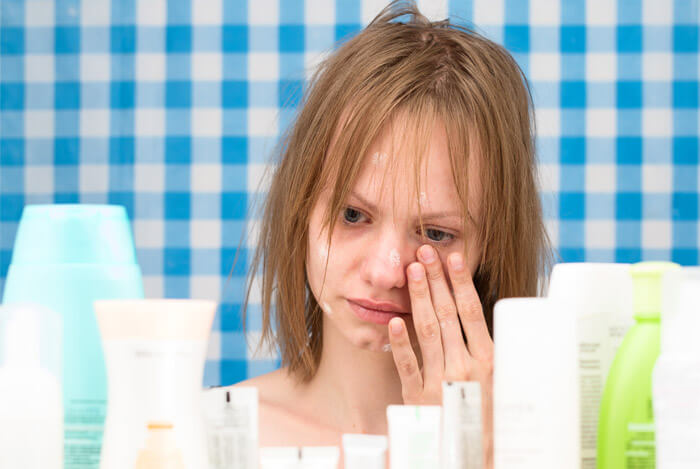
Before you splash out on expensive face creams for your dry, itchy or red skin, give your body a break from booze and see if that makes the difference.
A 1992 Medical Council on Alcoholism report states that an early sign of alcohol misuse can be less-than-glowing skin.
They claim that, in particular, psoriasis, discoid eczema and superficial infections are more common in heavy drinkers.
And, if you are already a rosacea sufferer you’ll be compounding your problem.
This common skin condition that causes facial redness and bumps can flare-up after drinking alcohol.
Shockingly, it takes just one alcoholic drink to trigger problems in two out of three rosacea patients, according to a survey by the National Rosacea Society of 700 patients.
Red wine is the worst offender, affecting 76% of patients, white wine affects 56%, beer 41% and champagne and vodka both cause problems for 33% of people.
Your Sexual Performance is Off

If you find you’re not up to it (no pun intended) after a night on the tiles, it might be time to cut down.
Both chronic alcoholism and even occasional excessive alcohol consumption ignite desire but impede performance in men.
The American Journal of Psychiatry published a paper that explains how sexual impotence due to erectile dysfunction after alcohol abuse can persist even after years of sobriety.
The authors claim this problem isn’t psychological or hormonal but physical, meaning the damage may be irreversible.
On the other hand, in women, alcohol consumption increases sexual desire, arousal, and pleasure, says research published by the California School of Professional Psychology.
Even so, women should be careful about drinking too much as it affects their fertility – even when engaging in light drinking.
A Danish study found that even drinking between one and five drinks a week – within the recommended guidelines – can reduce a women’s chances of conceiving.
And a 2009 study carried out at Harvard University, of couples undergoing IVF treatment, showed that women who drank over six units a week were 18% less likely to conceive, while men were 14% less likely.
Final Thoughts
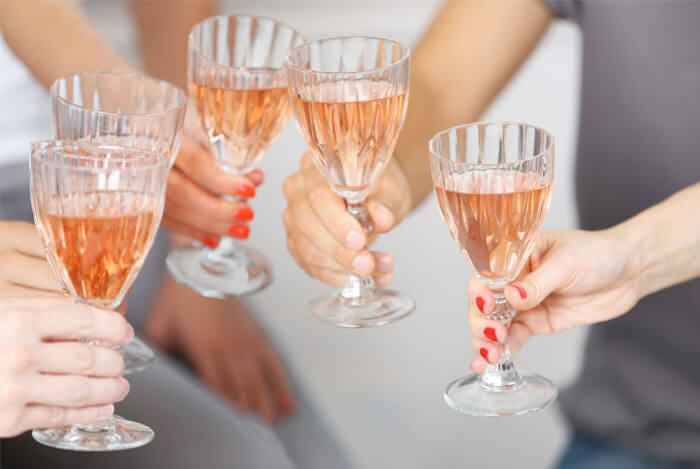
As tasty and enjoyable as wine, beer and other alcoholic drinks are, they’re not something to mess around with.
Too much alcohol can lead to a whole host of negative health issues – as well as the risk of developing alcoholism, something which already affects one in every 12 US adults.
And it goes without saying, if you experience the above symptoms or are otherwise worried about your drinking, consult your doctor.










